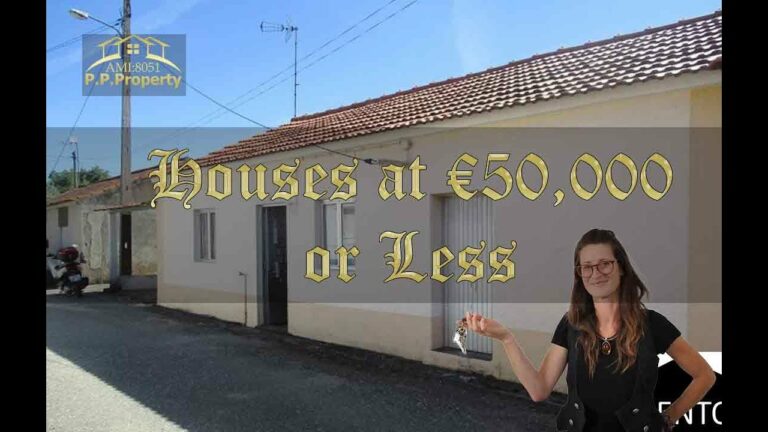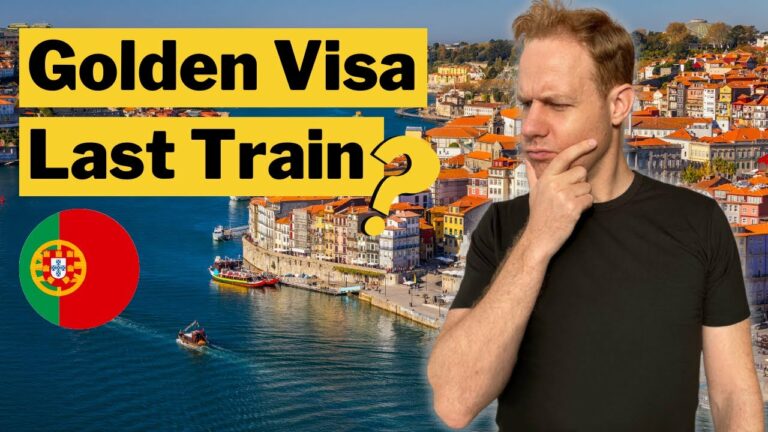D7 Visa vs Golden Visa Portugal: A Comparative Analysis on goldenvisareviews.com
Are you considering a move to Portugal? The land of sunny beaches, delicious food, and vibrant culture has become a popular destination for expats looking for a change of scenery. However, navigating the visa process can be overwhelming, especially if you’re unfamiliar with the different options available.
As someone who has personally gone through the process of obtaining a visa in Portugal, I understand the challenges and confusion that can arise. That’s why I want to delve into the topic of D7 Visa vs Golden Visa, two popular options for those looking to relocate to Portugal.
The D7 Visa, also known as the Retirement Visa, is a great option for those who have a steady income or savings and want to live in Portugal without engaging in any work-related activities. On the other hand, the Golden Visa program is designed for investors who are willing to invest in Portugal’s economy and businesses.
Each visa has its pros and cons, and the decision ultimately depends on your personal circumstances. But fear not, as an experienced expat and visa applicant, I will provide you with all the necessary information to make an informed decision. From the application process to the requirements and benefits of each visa, I will guide you through it all and share my personal insights and tips that will help you make the best decision for your unique situation.
So, let’s dive into the world of Portuguese visas and discover which option is the right fit for you.
What is the disadvantage of D7 visa Portugal?
If you’re considering a move to Portugal, one of the things you’ll need to think about is what type of visa you’ll need to obtain. The two most common options for non-EU citizens are the D7 visa and the Golden Visa. While the Golden Visa is typically considered the more desirable option, it does come with a hefty price tag. In this article, we’ll take a closer look at the D7 visa and explore its disadvantages.
What is the D7 Visa?
The D7 visa is a long-term visa that’s available to individuals who want to live in Portugal but don’t plan to work there. It’s designed for people who have a steady source of income from sources such as investments, pensions, or rental income. To qualify for a D7 visa, you’ll need to prove that you have the financial means to support yourself while living in Portugal.
The Disadvantages of the D7 Visa
While the D7 visa might seem like an attractive option, it does come with some significant disadvantages. Here are a few to keep in mind:
1. No Path to Citizenship
One of the biggest drawbacks of the D7 visa is that it doesn’t offer a path to citizenship. If you want to become a Portuguese citizen, you’ll need to live in the country for at least five years and obtain a different type of visa, such as the Golden Visa.
2. Limited Work Opportunities
Another disadvantage of the D7 visa is that it doesn’t allow you to work in Portugal. This can be a significant drawback if you’re hoping to build a career or start a business in the country. While you can still earn income from sources outside of Portugal, you won’t be able to take advantage of any employment opportunities within the country.
3. Restrictions on Travel
When you have a D7 visa, you’re only allowed to spend a limited amount of time outside of Portugal each year. This can be a significant disadvantage if you like to travel frequently or if you have family members in other countries that you want to visit. If you exceed the time limit, you could risk having your visa revoked.
4. Renewal Requirements
To maintain your D7 visa, you’ll need to renew it every two years. This means that you’ll need to go through the application process again, which can be time-consuming and stressful. If your financial situation changes and you’re no longer able to meet the requirements for the visa, you could risk losing your legal status in the country.
Is Portugal getting rid of Golden Visa?
If you’re considering moving to Portugal, you’ve likely heard of the Golden Visa program. This program allows non-EU citizens to obtain residency in Portugal in exchange for a significant investment in the country, such as real estate, business, or capital transfer. However, recent news has left many wondering if Portugal is getting rid of the program altogether.
While it’s true that the Golden Visa program has been under scrutiny in recent years, Portugal has not announced plans to get rid of it. In fact, the government has made modifications to the program to make it more attractive to investors, including expanding the types of investments that qualify for the program.
One reason for the increased scrutiny of the Golden Visa program is the concern that it has driven up real estate prices in Portugal, particularly in Lisbon and Porto. Critics argue that the program has made it difficult for local residents to purchase homes in these cities and has contributed to gentrification and displacement.
As a result, the government has made changes to the program to address these concerns. For example, they have increased the minimum investment amount for properties in Lisbon and Porto, while reducing it for investments made in other parts of the country.
While the Golden Visa program remains an option for investors, there is now a new visa option available for those interested in moving to Portugal: the d7 visa. This visa is designed for retirees or those with passive income and requires proof of sufficient funds to support oneself in Portugal without the need to work.
The d7 visa could be a good option for those who do not want to make a large investment in Portugal but still want to obtain residency. However, it’s worth noting that the application process can be lengthy and complicated, and it may be beneficial to seek the help of a professional immigration lawyer.
However, the government has made modifications to the program in response to criticism, and there is now a new visa option available in the form of the d7 visa. As always, it’s essential to do your research and seek professional advice before making any significant investment or immigration decisions.
What is the alternative to the golden visa in Portugal?
Portugal has become a popular destination for expats and investors alike, due to its warm climate, beautiful scenery, and relatively low cost of living. The golden visa program, which offers residency and citizenship in exchange for investment, has been a major draw for those seeking to make a home in Portugal. However, the program has come under scrutiny in recent years, with some criticizing the high investment threshold and the impact on local real estate prices. For those seeking an alternative to the golden visa, the D7 visa program may be a viable option.
What is the D7 visa program?
The D7 visa program is a residence visa program designed for individuals who wish to retire or live in Portugal without engaging in any employment or business activities. The program is aimed at individuals with a stable income, such as retirement income or investment income, and requires applicants to prove that they can support themselves without relying on Portuguese social services.
What are the requirements for the D7 visa?
The requirements for the D7 visa include:
- Proof of stable and regular income, such as retirement income or investment income
- A clean criminal record
- Proof of health insurance coverage
- Proof of accommodation in Portugal
- Proof of financial means to support oneself without relying on Portuguese social services
How does the D7 visa compare to the golden visa program?
The D7 visa program has several advantages over the golden visa program. Firstly, the investment threshold for the D7 visa is much lower than that of the golden visa, which requires a minimum investment of €500,000. Secondly, the D7 visa does not require applicants to invest in Portuguese real estate, which has been a contentious issue in the golden visa program due to its impact on local real estate prices. Finally, the D7 visa offers more flexibility in terms of employment and business opportunities, as it does not require applicants to prove that they will not engage in any employment or business activities in Portugal.
How to apply for the D7 visa?
Applicants can apply for the D7 visa at the Portuguese embassy or consulate in their home country. The application process typically involves submitting the required documents, attending an interview, and paying a fee. The processing time for the D7 visa varies depending on the embassy or consulate, but it typically takes several weeks to several months.
With its lower investment threshold, more flexible employment and business opportunities, and less impact on local real estate prices, the D7 visa may be the ideal choice for many expats and investors.
Is Portugal Golden Visa ending 2023?
Portugal has been a popular destination for expats and investors seeking a better quality of life and a more relaxed lifestyle. For many years, the Golden Visa program has been a popular option for those looking to obtain residency in Portugal. However, there have been recent discussions about the future of the program, particularly whether it will end in 2023.
What is the Golden Visa Program?
The Golden Visa program is a residency by investment program that was launched by the Portuguese government in 2012. The program enables non-EU citizens to obtain residency in Portugal by investing in the country. The investment can be made in several forms, including real estate, capital investment, or job creation. The program has been successful in attracting a large number of foreign investors, with over 9,000 Golden Visas issued since its inception.
The Future of the Golden Visa Program
Despite its success, there have been recent discussions about the future of the Golden Visa program. In 2020, the Portuguese government announced that it would be making changes to the program, which would include tighter restrictions on real estate investment. In addition, there have been rumors that the program could be phased out altogether, with speculation that the program could end in 2023.
While these rumors have caused concern among investors and expats, it is important to note that nothing has been confirmed by the Portuguese government at this time. It is also important to remember that the Golden Visa program has been a significant source of revenue for the Portuguese economy and has helped to stimulate growth in the real estate market. As such, it seems unlikely that the program would be completely eliminated without a suitable replacement.
The D7 Visa vs. Golden Visa Portugal
For those considering a move to Portugal, there are several residency options available. One popular alternative to the Golden Visa program is the D7 visa. The D7 visa is a long-term residency visa that is granted to individuals who can demonstrate regular income or sufficient financial means to support themselves in Portugal. While the D7 visa does not require an investment in Portugal, it does require applicants to demonstrate that they can support themselves financially.
When comparing the Golden Visa program to the D7 visa, it is important to consider your individual circumstances and goals. If you are looking to invest in real estate or start a business in Portugal, the Golden Visa program may be the best option for you. However, if you have a regular income or sufficient financial means and are looking for a more straightforward residency option, the D7 visa may be a better choice.
whether you’re considering the D7 visa or the golden visa program in Portugal, it’s essential to weigh all the pros and cons carefully. Portugal is a country rich in history, culture, and investment opportunities, making it an attractive destination for expats. Both visa options have their unique advantages and limitations, which require thoughtful consideration before making a decision. It’s also crucial to understand the local customs and cultural events in Portugal, as this will help you integrate better and enjoy your expat life to the fullest. With the right approach and mindset, moving to Portugal can be a life-changing experience, providing you with new opportunities, adventures, and memories that will last a lifetime.






